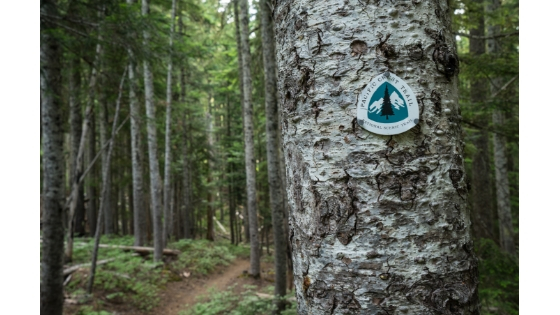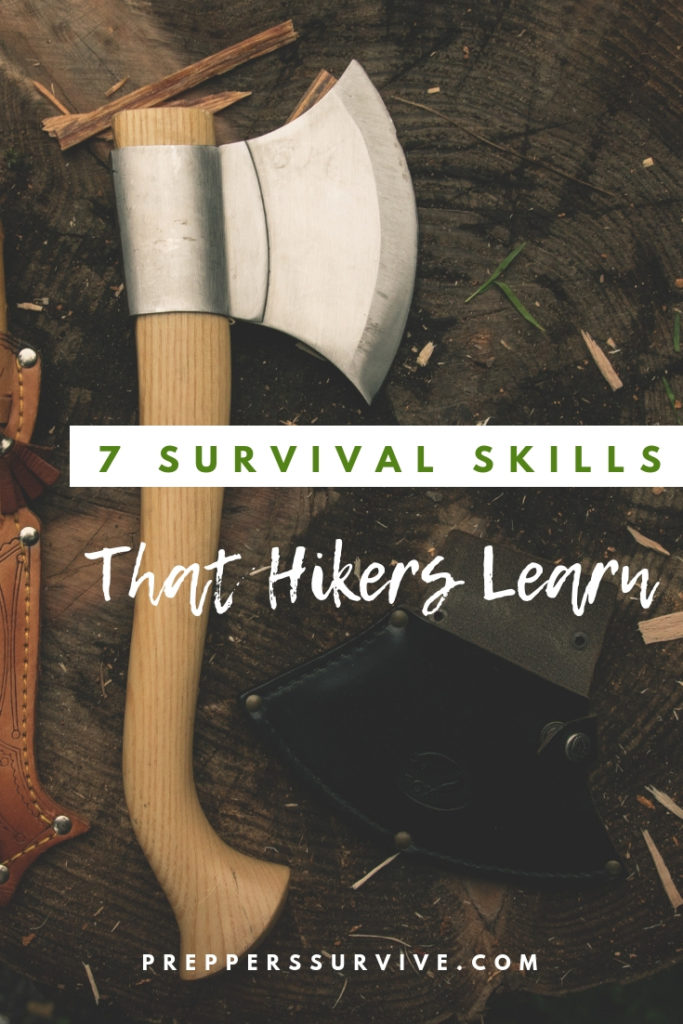
Although it’s a very popular hobby, hiking and backpacking can actually be a pretty dangerous game.
You’re putting yourself at risk going out there into the wild and potentially encountering things like dangerous animals and rocky terrains.
If you’re careful about it when you’re starting out though, you will pick up many tricks that will help you stay safe as you take on tougher routes and hikes.
Hiking is a good hobby to pick up because these are valuable skills for people to have anyway, but as well as that there are just many great reasons to get out and about.
So here are seven survival skills that you can practice and learn while you are out hiking.
7 Survival Skills That Hikers Learn on the Trail
1. Using a Compass
Many people who don’t hike probably think of a compass as just a relic from the past that’s been cast aside with the rise of modern technology.
And some people may very well have never even heard about a compass before. But the truth is that most hikers still actually use them for navigation.
These days, we have Google Maps on our phones and you can even download a compass app onto your phone, so it’s understandable to think that you don’t need a physical compass.
But the problem with all of that technology is that there needs to be a signal for you to actually use all of it.
If you’re lost in the woods, there is no guarantee that you will actually be able to connect to all of these fancy apps and then you’re in serious trouble unless you’ve got the old-fashioned stuff.
You’ll realize this very quickly as a hiker, it’s actually one of the basics of the hobby.
2. Collecting Dew
Unlike the compass thing, this is definitely not one of the basics of hiking. I wouldn’t be surprised if this is the first some of you have heard of dew collecting.
This is a great way to deal with a scarcity of water though. I’d advise that you avoid bringing too much bottled water with you because you can always bring something to purify freshwater.
But even if you find yourself nowhere near a lake or a stream, you can always collect dew from plants.
Dew forms on larger leaves and the best way to do this is to find them before sunrise and use a light towel to absorb the moisture. You can wring it out into some kind of container after that.
3. Building a Fire
Building a fire will become like second nature to you if you are a regular hiker and there’s a couple of different ways you can do it.
You can, of course, go the very traditional route of finding wood and using friction, that’s definitely a very valuable skill to have.
But that’s not going to work when you’re in a damp environment. Always have a pack of stormproof matches and a lighter with you.
There are factors you need to consider when starting a fire such as the wind and dangers of fire in a specific area but once you get the hang of it these things are easy to spot.
4. Tying Knots
You’ll find that knots are incredibly useful for backpackers and the more different kinds of knots you know how to tie the better.
You’ve got the square knot which is the most well-known one and it’s great for tying things to your pack.
Then, of course, there’s the backpacker’s hitch which you can use to tie a hammock to a tree or to hang a bear bag.
The bowline knot is another one you could learn which is great for tying a canoe to the shore if you are traveling on a body of water.
And these are barely scratching the surface of the knots that you’ll learn how to tie.
5. Signaling Rescuers
No matter how prepared you are when you head out for a hike, sometimes things just go horribly wrong and it can be completely out of your control.
I’d always say that you should aim to be comfortable hiking by yourself, but you should be prepared for the possibility that you need someone else to help you out.
There are lots of different measures you can take to ensure that you can signal distress if you end up in a dire situation.
Have a whistle on you at all times, that’s always reliable and it’s also good to learn how to produce black smoke from a fire.
This is something that is recognized by hikers as a signal of distress and so potential rescuers will gravitate towards the sight of it.
6. Dealing With a Fracture
Fractures and sprains are common, and that sucks, but any experienced hiker will be able to set one if it happens.
Being incapacitated in the woods is a recipe for disaster so this is an essential skill. And tying into this, you should always have a fully stocked first aid kit with you.
Knowing how to make a splint could save your life. You should have the means to make one in your first aid kit, but it’s also possible to improvise and use parts of the environment.
And if you happen to, unfortunately, break your arm, you can make a sling using some rope and a long sleeve.
7. Tool Making
We’ve talked about improvisation a lot here in this article, and making your own tools is basically another element of that.
You can learn how to make a spear, a bow and arrow and perhaps the most useful of all would be a small knife.
A small knife is a handy thing to have. You can use it to skin small animals, cut down small trees, cut lengths of rope, the uses are endless.
They are relatively easy to make too and you could use something like a piece of flint stone or even a shard of glass.
Conclusion
No matter what, the most important thing when it comes to hiking, is your own personal safety. It’s fun, it’s rewarding and it’s exciting and all that, but you have to stay safe.
These are some of those all-important survival skills that hikers learn and you should pick up along the way that will ensure you can avoid danger when you’re out in the wild.
Thanks for visiting Preppers Survive. Get preparedness tips by subscribing in the red box below. If you enjoyed this article, please share it on your favorite social media and vote for Preppers Survive here.



Nettie, in my life, I’ve been on many field explorations… primarily caving. One of the best tips for any group of people when doing so together is for the weakest to stay closest, or to keep up with, to the leader. As the day moves on and the team is spread out….. spacing between the front and back of the group increases. When a break is called, those in the lead choose the time to rest. If a person is say 5 minutes lagging behind, by the time they reach the rest point all too often the lead personnel are almost ready to depart, hit the trail again. Literally no rest for the weary. By keeping to the front of the group, those who need the breaks more …. get them. if the weaker members do not, they fall further and further behind.
Never collected Dew but purified many bottles of water even on a single overnight trip. Its surprising in the mountains just how many streams you come across that are not on the map. I used a compass very regularly in my last hike thanks to the trails being in terrible disarray. Along with new additions that were not added to the trail map. Makes the best hike though, sometimes pristine trails takes the fun out of it. Not lost but out on adventure.